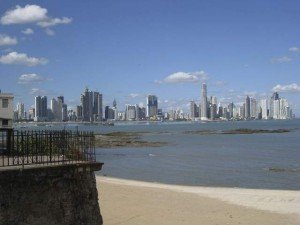
(Business Insider Australia) In 2008 my wife and I packed up our family, with two children under 6 and moved to Panama.
When we arrived we found out we were not the only ones. In fact, in the last five years our small expat community in Panama has transformed from a rural beach community to a populous expat haven with three new and thriving elementary schools teaming with expat children.
I’ve lived in boomtowns before, Atlanta, Key West, Waikiki, but I’d never seen anything like this. Naturally I wondered, “Why are all these families with young children leaving the U.S.?
Personally, I was tired of the rat race and wanted to slow down and enjoy life. I was sick of the bill of goods that was sold to me about needing to be a consumer to be happy. In addition I was concerned with the future of the U.S. economy and wanted to move some of my savings into foreign real estate. I also wanted to prepare my children for a globalized world.
Well, I discovered I was not the only one with these same desires.
In fact, if you poll your friends you will likely find some who are actively planning to leave the U.S. as well. Not just daydreaming but actually planning the move.
They are not alone. According to Bob Adams, CEO of New Global Initiatives, millions of households are planning to leave the U.S. Bob has been surveying Americans since 2005, and what he finds is enlightening.
He asked this question, “Are you planning to relocate to another nation for more than two years for reasons other than the requirements of the military, the government, or your job?” The number who answered yes topped 5% for those aged 25-34. That is one in 20 people and represents over 2 million people.
I have seen tremendous variety in the types of people relocating. Some are wealthy but most are middle class. Some are highly educated and some less so. The common thread that unites them is a search for opportunity and freedom.
Opportunity.
The legendary investor Jim Rogers said, ”If you were smart in 1807 you moved to London, if you were smart in 1907 you moved to New York City, and if you are smart in 2007 you move to Asia.”
That’s exactly what he did. In 2007, he sold his New York mansion and moved to Singapore with his young children because he believes the greatest opportunities in the future will be found outside of the U.S.
Since 2007, the Gallup organisation has asked people in over 100 countries, “Ideally, if you have the opportunity, would you like to move permanently to another country, or would you prefer to continue living in this country?”
Gallup found the numbers responding that they would move permanently were down in all regions except North America and Europe. Perhaps not coincidentally, these two regions of the world have stalled economically while simultaneously their public debt levels have soared.
Many seeking opportunities are finding their options are greater outside the U.S.
A rising tide lifts all ships, and with U.S. economic growth anemic at best, countries with better economies suddenly look appealing.
Take Panama and Singapore for example: In Singapore the GDP growth for 2010 & 2011 was 9.8 per cent, and in Panama it was 9.1%. Compare that with 2.3% in the U.S. and you begin to get the picture.
In addition to seeking economic opportunities abroad, many of these new immigrants believe protecting their wealth from confiscatory governments by “offshoring” some portion of their assets just makes sense.
With Cyprus seizing assets directly from their citizens’ bank accounts, many fear more developed first world nations may not be far behind.
One way to protect their wealth is through direct ownership of foreign real estate. Whether it is farmland in Chile or beachfront property in Ecuador, where new beachfront condos sell for under $79,000, many believe that cheap foreign real estate in rapidly growing economies is an excellent “hedge” against sovereign risk back home.
Freedom.
The U.S. has long been considered the land of the free and it remains the number one destination for those who want to leave their countries, according to Gallup.
But according to the 2013 Heritage Index the U.S. is slipping in the freedom department. It is now considered less free than Chile, Hong Kong and even Singapore. Whether it’s perception or reality, many considering moving abroad believe their economic and personal freedoms are eroding.
I always laugh when guests ask if they can bring beer or build a fire on the beach. Of course they can. Their kids can also run around the pool and do flips and dives. It is these small everyday freedoms that make living abroad so pleasant.
According to an IRS report released just last December “…globalization has pushed an increasing number of individual taxpayers (including entrepreneurs and small businesses) to seek economic opportunities abroad.”
While the numbers are small, they have been increasing steadily since 2005.
Why this trend will increase.
Besides opportunity and freedom people move abroad for dozens of other reasons. They may simply wish to learn a foreign language or have some adventure in their lives. They may move because they are tired of the rat race, or maybe they just want better weather and a lower cost of living.
Americans are moving abroad simply because they can. With a good internet connection it has never been easier for families to be mobile and make a living remotely. If people can make a living anywhere, why not live where the weather is good, the economy is growing and the government stays out of you hair?